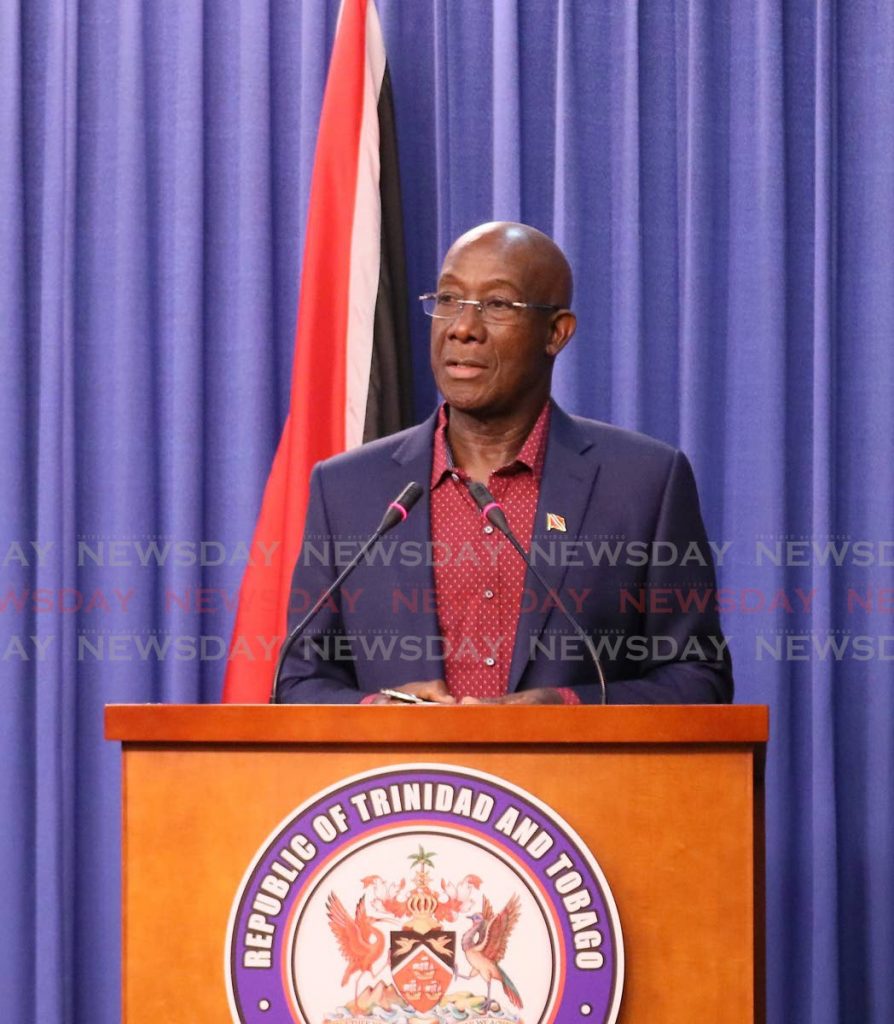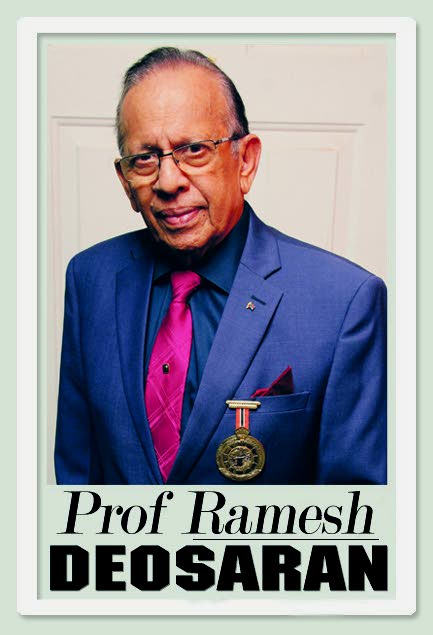The PSC, politics and Rowley

Like an angel of mercy, Justice Nadia Kangaloo last week briskly brought some relief and certainty to a very troubled, confusing situation.
After weeks of wrangling and speculation over the legality of Gary Griffith’s appointment as acting commissioner of police, Justice Kangaloo ruled that such appointment by the Police Service Commission (PSC) was null and void and that paragraph four of Legal Notice (183 of 2021) which allowed such appointment was unconstitutional.
Two months ago, Senior Counsel Rolston Nelson also questioned the constitutionality of this legal notice. Two weeks ago, Prime Minister Dr Rowley admitted that “an error was made.”
There were three matters filed in court around the PSC decisions. Faced with sharp disagreements within the PSC membership and their alleged misbehaviour, Opposition questions over President Paula-Mae Weekes’ handling the list of nominees for commissioner and acting commissioner, the PSC collapsed, so by last Friday there was no commissioner or acting commissioner and also no PSC. This was widely described as a “constitutional crisis.”
Dr Rowley defensively declared it was “a situation but not without a solution.” National Security Minister Fitzgerald Hinds said that Mc Donald Jacob by virtue of being Deputy Commissioner “remains in charge.” Whenever there is no law or system to cure or solve an emergency, the “doctrine of necessity” can be looked at for temporary relief. Is this what Hinds meant?
Justice Kangaloo’s decision, short-term as it may be, reminds me of Shakespeare's words: “Sweet are the uses of adversity which, like the toad, ugly and venomous, wears yet a precious jewel in his head.” We may not like it but, facing our constitutional adversities, we should still find something good, a precious jewel, from it. But this depends primarily on Dr Rowley.
I am not talking about what the President or the PSC will do or not do when fully packed. The unholy mess, legal expenses and loss of public confidence the country has experienced over the operations of the PSC and appointing a Commissioner of Police (CoP) cannot continue. Merely tinkering and chinksing with bits and pieces of the PSC, the role of Parliament and the President will no longer do. A legal notice yesterday, a new one tomorrow etc, seems to bring more confusion rather than efficiency.

It now seems that after several years of adverse concerns, mishaps by the PSC and court trials, Dr Rowley has admitted that the current system of appointing a CoP is “far worse than before.” Well, if it's broken, fix it.
In a gruelling bipartisan effort both Patrick Manning’s PNM and Basdeo Panday’s UNC established Act No. 6 of 2006 now used. Depending on the court decisions, and the experiences with the PSC since 2006, Dr Rowley should move forward with reforms. And having been there in 2006 as one of them, UNC Opposition Leader Kamla Persad-Bissessar is obliged to say something now.
Apart from Justice Kangaloo’s ruling, this Legal Notice 183 provoked a lingering question: Why bring it to Parliament when you already have Legal Notice 103 of 2009 which made the acting appointment from within the ranks of the police service? What was the motive for specifying “persons on contract?” It appeared as if some high official had some particular person in mind for not only the acting appointment but also for the substantive position. Such a situation created embarrassment for the PSC and havoc with public confidence.
This is one of the experiences that should inform the extensive reforms required. In fact, the question may well be asked: Do we really need in their present forms a PSC, a Public Service Commission and Teaching Service Commission? A lot of things have changed since 1962.
The PSC saga is not yet over. The nominations for both PSC members and the CoP are yet to reach Parliament for a noisy political debate. Since the crime and murder rates are escalating, the working man in the bus is therefore left to wonder what is really going on up there. He is bothered by at least three evolved defects in the police commissioner appointment process:
1. The list of nominations are now sent from the PSC to the President who then sends the list of nominations to Parliament. Here the nominations are debated and approved or disapproved by majority vote.
Now since it is the PM who leads the government side for saying “yea or nay” to a particular nomination, he is responsible for giving reasons for so doing. He just can’t jump up and say “yes or no.” And to appear reasonable and objective, he must gather the facts about performance, integrity etc, through some form of inquiry or another, and possibly with police co-operation, especially if he disagrees with the nomination for CoP. How else? So the question of “political interference” by the PM in this instance needs to be examined for practical reasons beyond mere principle. Otherwise change the system.
2. There is understandably strong objection to “political interference” in the PSC’s assessing and nominating the CoP or deputy CoP. However, suppose the PM, as chairman of the National Security Council is provided with substantive and serious information from the State’s intelligence agencies. Suppose again, such information is very relevant to the constitutional criteria for considering the appointment of a CoP or deputy CoP, would the transmission of such information from the PM to the PSC be “political interference?”
I am just asking to suggest that if Dr Rowley and his Cabinet decide to undertake the necessary review of the PSC and its functions, the experiences and questions that arose since 2006 should be carefully considered.
3. A major objection was raised during the 1990s against (i) the police commissioner having heavy responsibilities but no appropriate powers and (ii) the PM veto over the CoP appointment. The Constitution states: The CoP “shall have complete power to manage the Police Service,” and to “ensure that the human, financial and material resource available are used in an efficient and effective manner.” (Section 123A(1)) In the required review of this “complete power,” the PSC should submit its recommendations in terms of measured performance and accountability. Absolute power corrupts.
The 1976 Constitution stated that “a person shall not be appointed” as CoP if the PM “signifies to the Police Service Commission his objection.” But what does the man on the bus find today in 2021? He sees not just one man, but 41 politicians in Parliament could virtually say no, that is, vetoing down the PSC nomination. It is the politicians, in effect, who appoint the CoP. So the puzzled man on the bus asks himself: Is this not “political interference” constitutionally permitted? He asks: Why Parliament went through all that trouble and expense in 2006 to remove something which still stares them in their faces in 2021? He leaves the bus, grumbling to himself, “I tell you, these lawyers eh.”
Also up for urgent consideration is the Police Complaints Authority's (PCA) request for power to prosecute – the troubling delays are causing a loss of public confidence. Parallel attention must be also be given to the severe staff shortages in the Office of the Director of Public Prosecutions. The country should still gain some benefit from this PSC catastrophe.

Comments
"The PSC, politics and Rowley"